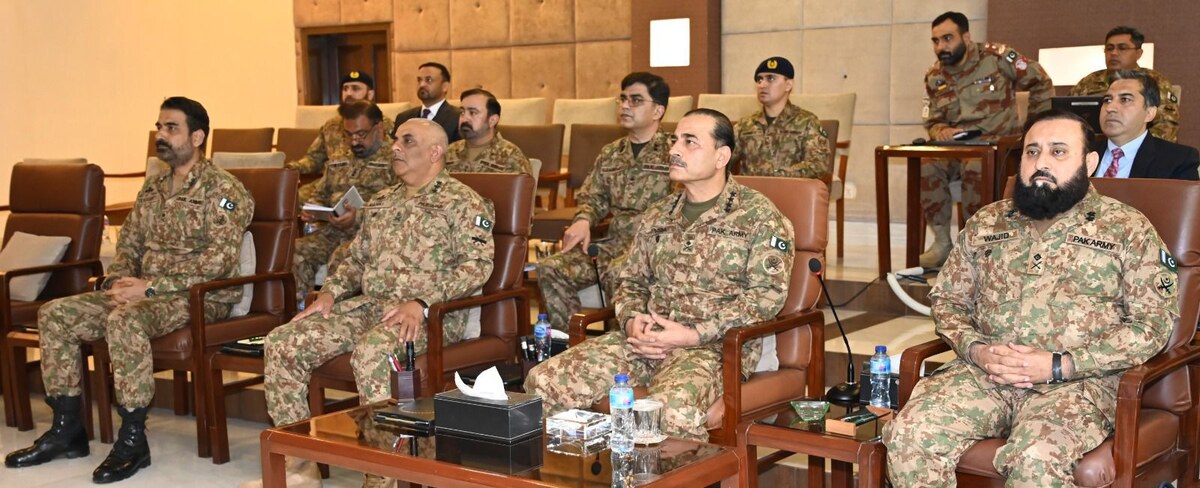KARACHI: Pakistan’s top court on Wednesday directed the federal government to constitute a new joint investigation team (JIT) to probe the assassination of journalist Arshad Sharif which, according to a fact-finding team (FFT), was the work of transnational individuals.
Sharif, a prominent Pakistani journalist who turned into a harsh critic of the incumbent government and the country’s military, was shot and killed by the police in the East African state of Kenya on October 23. The authorities in Nairobi described the incident as a case of “mistaken identity,” adding it took place when the journalist’s vehicle sped up and drove through a checkpoint.
The federal government constituted a five-member JIT to probe the murder a day after the first information report (FIR) was registered by the Islamabad police on the Supreme Court’s instructions on Tuesday. The FIR was lodged against three people, Waqar Ahmed, Khurram Ahmed and Tariq Wasi, who are suspected to have played a role in Sharif’s killing.
“The federal government should immediately constitute a new joint investigation team,” Chief Justice of Pakistan Umar Ata Bandial said while hearing the suo moto case related to the matter. “The court wants an independent team to probe this case.”
Justice Bandial said the new team should include officials belonging to the Inter-Services Intelligence (ISI), Intelligence Bureau (IB), Federal Investigation Agency (FIA) and police. He argued the court had not constituted a judicial commission as demanded by Sharif’s family since it was a criminal case.
The slain journalist’s mother, who attended the proceedings along with her daughter-in-law, told the court the fact-finding report had recorded how her son was forced to leave Pakistan and then pressured to move out of Dubai.
The court proceedings would resume tomorrow.
Meanwhile, the fact-finding team’s report seen by Arab News said the role of transnational characters in Kenya, Dubai and Pakistan could not be ruled out in the assassination.
“Both the members of the FFT have a considered understanding that it is a case of planned targeted assassination with transnational characters rather than a case of mistaken Identity,” the report said.
The team noted there were compelling reasons for Sharif to leave Pakistan, adding that criminal cases registered against him in different districts were most likely the reason why he was also asked to leave by the UAE authorities.
“The four GSU [General Service Unit] police officials [in Kenya] ... had been used as instruments in this case under any influence, either financial or some other compulsion,” the report said, adding that Waqar, who hosted Sharif, was connected to the National Intelligence Service (NIS) of Kenya and international intelligence agencies and police.
His brother, Khurram, was driving Sharif back to Nairobi when the shooting incident took place.
The fact-finding team said the role of Tariq Wasi was also dubious.
“Since he was the one who was directly linked with Waqar and who arranged for Arshad Sharif to be hosted by Waqar in Kenya, if indeed the case has a transnational angle, then Tariq Wasi would also become a key lynchpin for anybody wanting to murder Arshad Sharif,” the report added.
The document noted Sharif was widely considered throughout the journalistic community in Pakistan as a “pro-establishment journalist.” He was known to have a very positive relationship with the military and also developed a very close relationship with former prime minister Imran Khan’s Pakistan Tehreek-e-Insaf (PTI) party.
The report said the slain journalist became critical of “the military’s stance” following the no-trust motion against Khan which resulted in the change of government in the country.
“That criticism became sharper and sharper and, in some cases, came out in very personal terms against certain individuals,” it maintained. “This created a rift with the institution.”
The document further said Sharif was struggling to reconcile his previous closeness to the military with his new anti-establishment stance, adding he was conducting a dialogue “either internally or with someone else.”
Barrister Shoaib Razzaq, Sharif’s lawyer and friend, confirmed to the fact-finding team that 16 cases had been registered against the slain journalist who left Pakistan due to the fear of being arrested. He added that some of these cases were brought against Sharif on the behest of a serving brigadier since the two developed a bad relationship after the downfall of Khan’s administration.
Pakistan’s military has so far not responded to the claim.























